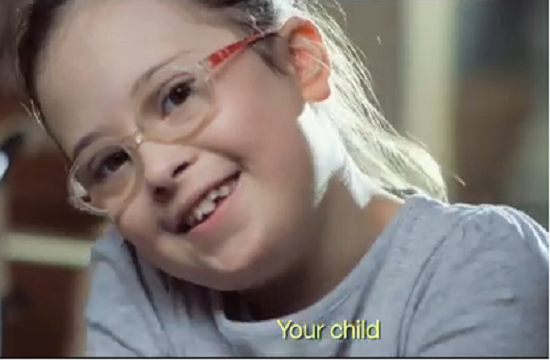A woman’s reason for aborting her unborn baby should not matter, even if she does not want a child with Down syndrome, an attorney for Planned Parenthood told a federal court Thursday.
Abortion is a woman’s “absolute right,” ACLU attorney Ken Falk argued in front of a panel of the 7th Circuit Court of Appeals, the Indiana Lawyer reports.
On Thursday, the appeals court heard Planned Parenthood and the ACLU’s challenge of an Indiana state law that prohibits abortions based solely on an unborn baby’s sex, race or disability such as Down syndrome. The state and Planned Parenthood have been battling over the law in court for more than a year. In September, a federal judge appointed by President Barack Obama blocked the law. However, the state appealed to the 7th Circuit Court.
On Thursday, Indiana Solicitor General Thomas Fisher centered his argument around laws protecting individuals from discrimination. Falk, representing Planned Parenthood, countered that women’s “right” to abortion under Roe v. Wade is paramount.
Throughout the battle, Planned Parenthood has claimed that the law places an unconstitutional burden on women’s access to abortion.
Here’s more from the Indy Star:
Calling the law a prohibition on “discriminatory abortion,” Fisher argued that HEA 1337 does not infringe on a woman’s rights to obtain an abortion under legal precedent set by Roe v. Wade or Planned Parenthood of Southeastern Pennsylvania v. Casey. …
Falk said the law is an infringement on women’s privacy interests. “The state seeks to examine why women seek abortion,” Falk told the panel.
Current legal precedent “erects a realm in which the state may not enter,” he said.
The Indiana Lawyer reported more details:
Indiana Solicitor General Thomas Fisher told the appellate panel of judges Joel Flaum, William Bauer and Daniel Manion that allowing “discriminatory” abortions would risk the decimation of people with certain disabilities, such as Down syndrome. He pointed to previous Planned Parenthood testimony that at least 50 percent of women will terminate pregnancies for such reasons, a fact he said could lead to an American situation like that of Iceland, where fetuses diagnosed with Down syndrome are frequently aborted. …
SIGN THE PETITION! Congress Must De-Fund Planned Parenthood Immediately
But ACLU of Indiana legal director Ken Falk said the binary choice theory Fisher put forward was not applicable. Under Roe and Casey, a woman’s absolute right to abortion was upheld as part of a privacy interest, Falk said — an interest into which the state cannot enter.
The central principle of Roe was that before a fetus is viable, the state does not have a strong enough interest to support an abortion prohibition, Falk said. Further, a woman cannot be prohibited from having the final say in whether she terminates her pregnancy, he said.
House Bill 1337, signed by former Gov. Mike Pence in 2016, would ban abortion doctors from knowingly aborting an unborn baby solely because of a genetic abnormality such as Down syndrome, the unborn baby’s race or sex. The bill also has several other abortion-related measures, including a requirement that aborted or miscarried babies’ bodies be cremated or buried and another requirement that abortionists who have hospital admitting privileges renew them annually.
State Sen. Liz Brown, who worked on the legislation, previously said many families face pressure to abort from doctors or other health care professionals when their babies are diagnosed with a disability in the womb. LifeNews has documented numerous cases of families saying the same thing.
“What we hear from doctors is — it would really be better off if you were not born,” Brown said. “If you are born, we will love you, and we think you have equal rights and should be a member of society. In fact, we have the Americans with Disabilities Act and have to make accommodations. But we don’t want to make the accommodation before you’re born, and in fact, it would really be easier if you were not born.”
In 2013, North Dakota became the first state to pass a similar bill to protect unborn babies from abortions because of disabilities. This week, abortion activists challenged an Ohio law that similarly protects unborn babies with disabilities from discriminatory abortions.








